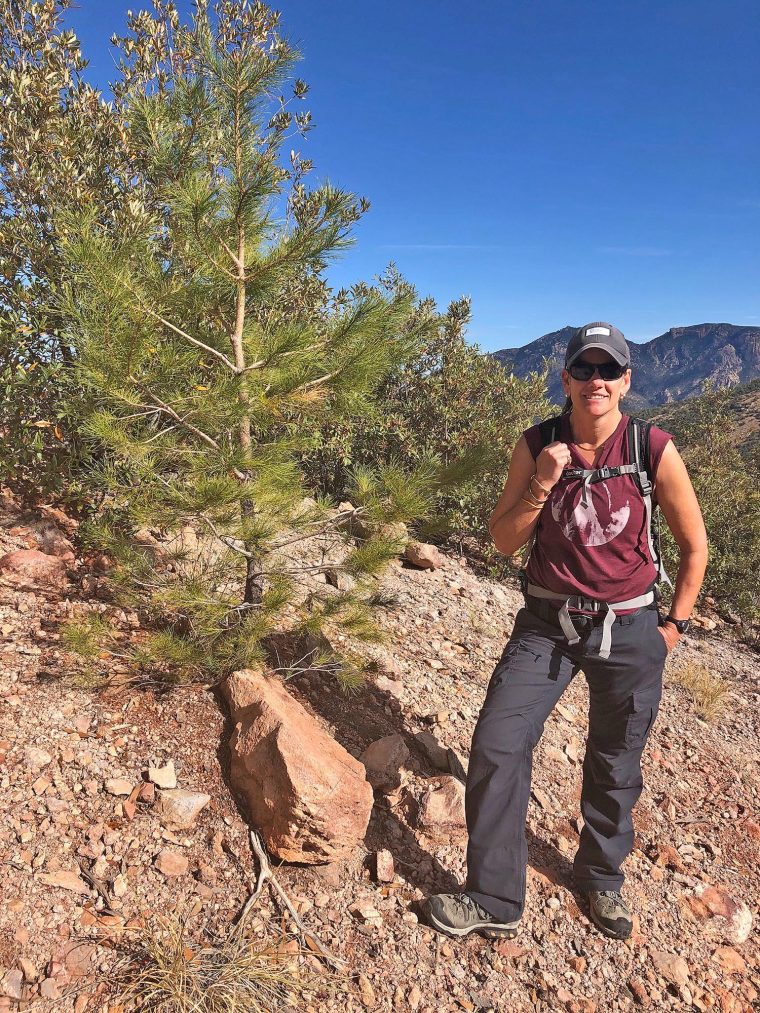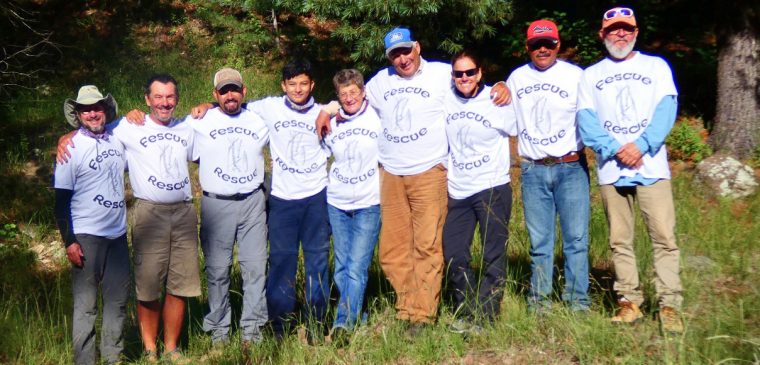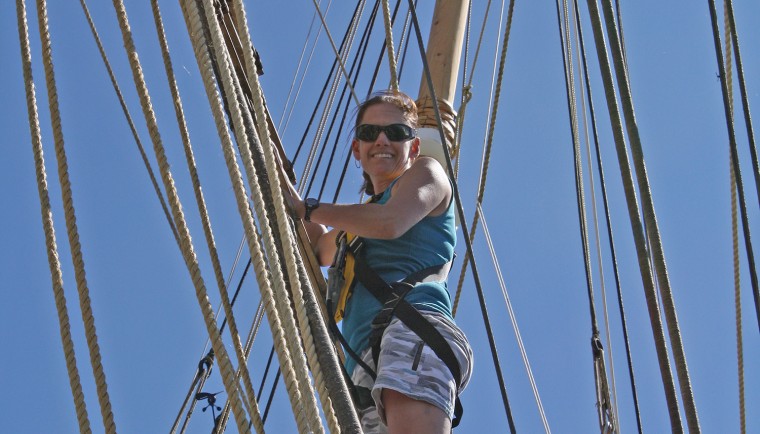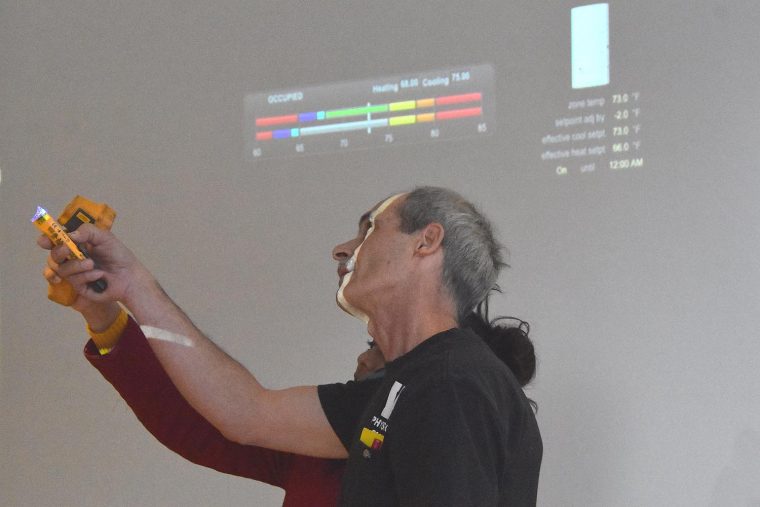Helen Poulos, adjunct assistant professor of environmental studies, is the lead author on a research article titled “Wildlife severity and vegetation recovery drive post-fire evapotranspiration in a southwestern pine-oak forest, Arizona, USA” published in Remote Sensing in Ecology and Conservation on May 8, 2021. Undergraduates Michael Freiburger '21 and Hunter Vannie '20 assisted in collecting field data. From the paper’s abstract: In this study, post-fire ET was driven by plant species composition and tree canopy cover. ET was significantly higher in the morning and midday in densely vegetated post-fire shrublands than pine-dominated forests that remained 5–7 years after wildfire. Our…
Peter “Kosty” Kostacopoulos, adjunct professor of physical education, emeritus, and former head baseball coach and assistant football coach, passed away on March 25 at the age of 86. Kosty earned his BS from the University of Maine, where he lettered in football, basketball, and baseball, and made the All-Maine Conference in football and basketball. After coaching at Bowdoin for nine years, he arrived at Wesleyan in 1968. He served as head baseball coach for 28 years and assistant football coach for 19 years. He also served as a head squash coach during this time. Kosty led the Cardinals to 11…
Gabe Snashall '21 and Adjunct Assistant Professor of Environmental Studies Helen Poulos are the co-authors of "Oreos Versus Orangutans: The Need for Sustainability Transformations and Nonhierarchical Polycentric Governance in the Global Palm Oil Industry," published in the Feb. 22 issue of Forests. According to the paper's abstract, "While the myriad benefits of palm oil as a food, makeup, and cleaning product additive drive its demand, globally, the palm oil industry remains largely unsustainable and unregulated. The negative externalities of palm oil production are diverse and devastating to tropical ecosystem integrity and human livelihoods in palm oil nations. Given the current…
Wildfires can transform forest ecosystems to varying degrees, depending on fire severity. While low-severity wildfires change plant community composition by killing short-statured trees and understory plants, high-severity fires result in top kill of above-ground vegetation. This variation in wildfire effects can have major impacts on post-fire vegetation composition and water stress. Helen Poulos, adjunct assistant professor of environmental studies, received a $300,000 grant from NASA on Dec. 5 to examine how forests can permanently change in response to high-severity wildfire in southeastern Arizona. (more…)
The rare Guadalupe fescue once thrived in abundance atop mountains spanning the Texas-Mexico border, however, the desert-growing perennial grass is now so endangered, it only flourishes in two locations on Earth. The rapid population decline is leaving scientists puzzled. "Developing an effective recovery plan is essential for protecting Guadalupe fescue, however, the lack of basic information about this species’ ecology is a serious barrier to that goal," explained Helen Poulos, adjunct assistant professor of environmental studies. "Urgent action is needed to stabilize the two extant populations." This summer, under Poulos's leadership, Wesleyan received a National Park Service Grant to study…
Helen Poulos, adjunct assistant professor of environmental studies, is the coauthor of two published papers in February. "Response of Arizona cypress (Hesperocyparis arizonica) to the Horseshoe Two Megafire in a south-eastern Arizona Sky Island mountain range," is published in the February issue of International Journal of Wildland Fire (Issue 28, pages 62-69). It is coauthored by Andrew Barton, professor of biology at the University of Maine at Farmington. This study documents the effects of the 2011 Horseshoe Two Fire in the Chiricahua Mountains of southeastern Arizona on Arizona Cypress. Two Wesleyan students, Hunter Vannier '20 and Michael Freiburger '21 assisted…
Helen Poulos, adjunct assistant professor of environmental studies, is the coauthor of two papers published Oct. 22 in the journals Fire and Philosophical Transactions of the Royal Society B, respectively. Poulos lead-authored a paper on fire and plant evolutionary ecology titled, "Do Mixed Fire Regimes Shape Plant Flammability and Post-Fire Recovery Strategies?" Contrary to a new model assuming that plant species have evolved three divergent flammability strategies, Poulos and her fellow researchers present three case studies that indicate plant species have evolved "bet-hedging strategies" that mix a variety of flammability and post-fire recovery strategies. Poulos also co-authored a paper led by ecologist Christopher Johnson of…
On June 15, Helen Poulos, a postdoctoral fellow in the College of the Environment, set sail aboard the Charles W. Morgan, the last remaining wooden whaling ship in the world. Built and launched in 1841, the Morgan embarked on 37 voyages up until 1921, roaming every corner of the globe in pursuit of whales. She had been docked at the Mystic Seaport in Connecticut since 1940, and underwent major restoration work in recent years. This month, she took one final commemorative voyage in order to call attention to the importance of historic ships and America’s maritime heritage, as well as…
Wesleyan’s intellectually dynamic faculty, students, alumni, staff, and parents frequently serve as expert sources for national media. Others are noted for recent achievements and accolades. A sampling of recent media hits is below: June 24 Marketing Technology Insights — ADEC Innovations Appoints New Executive To Lead Company In Their Next Phase Of Growth And Development. Features Sondra Scott '88, chief executive officer for ADEC Innovations U.S. and Europe. The Middletown Press — Connecticut State Colleges and Universities to require the COVID-19 vaccine for students this fall. Mentions that Wesleyan University "was among the first in the state to require the…
As part of the Introduction to Environmental Studies class, six students embedded themselves into the work lives of Wesleyan's Physical Plant employees to learn the inner workings of campus. Leila Henry '23, Serena Aimen '22, Tanvi Punja '22, Molly Scotti '22, Nina Criswell '22, and Mikaela Marcotullio '23 shadowed the Physical Plant workers for three-hour shifts every week throughout the fall semester. The experience concluded with performances on Dec. 5 that represented the culmination of that work. The class was taught by Helen Poulos, adjunct assistant professor of environmental studies, and the performances were curated with the help of Allison…
Although dam removal is an increasingly common stream restoration tool, it may also represent a major disturbance to rivers that can have varied impacts on environmental conditions and aquatic biota. In a paper titled "Dam Removal Effects on Benthic Macroinvertebrate Dynamics: A New England Stream Case Study, five researchers from Wesleyan examined the effects of dam removal on the structure, function, and composition of benthic macroinvertebrate (BMI) communities in a temperate New England stream. The benthic—or "bottom-dwelling”—macroinvertebrates are small aquatic animals that are commonly used to study biological conditions of water bodies. The paper is published in the May 21…
On March 2, the College of the Environment Think Tank presented a multidisciplinary performance titled, "Facing Disasters: Disturbing the Human-Environment Relationship" in Memorial Chapel and Zelnick Pavillion. COE fellows and members of the Wesleyan community explored ideas of facing disasters and motivating action by presenting multiple works that engaged with the 2017–18 Think Tank theme "From Disruptions to Disasters." Presenters included Vaishvi Jhaveri '18; Paula Tartell '18, Shingo Umehara '18 Nora Thompson '15 and Ostin Pham '17. Other participants were Katja Kolcio, associate professor of dance, associate professor of environmental studies and associate professor of Russian, East European, and Eurasian studies; William Johnston, professor of…








